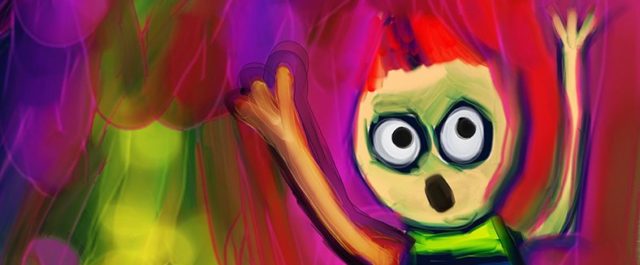Dawn Cunningham
Going a day without writing is damaging to my psyche. Those tidbits of thoughts that won’t leave me alone are best written on paper to escape the confinement of my synapses. Without releasing the synapses, my mind comes overburdened with screams walking through my life.
This happened to me after my son was diagnosed with cancer. My mind became weighted, as if a bottle was filled with soda, ready to explode; however, the words couldn’t escape. Grief does strange things to a person. I wanted to write but for some reason I feared writing. I even feared reading my favorite story lines and favorite authors. The absolute joys of my life (other than my children and grandchildren) had left me, ran away, abandoned me to the noise scrambling within, the synapses not firing as they once did. I couldn’t write a simple poem. On occasion, I would get a line to come out. I even attempted sketch-writing but this did nothing to free the words sealed in my brain. Poetry, the genre I normally write in, was gone—along with journaling. Journaling had always been my partner in crime, sort of speaking. I always carried a journal with me. In time, even carrying a journal with me dissipated. I knew this wasn’t writer’s block; I’ve never believed in writer’s block, and I still don’t. This was a part of me that sneaked up and unconsciously said, “You don’t deserve joy.” My mind had imprisoned me, had taken away my capability to write words, to enjoy words on a page. Writing and reading was my inspiration—had been my inspiration: it was gone.
I don’t know how or exactly when my writing began to come out of the darkest deepest corner. Somewhere, the synapses decided to fire. Writing fought its way out of the prison. I was dying, and writing knew it. This is when I realized, “Storytelling keeps the World alive.” This is what the Native Americans meant, I thought; this is why Granma Ginny told her stories, I thought; she knew, her Native American blood knew. Stories weren’t only lessons and reminders of the past but part of the body; without the story, life doesn’t exist. I knew I had to tell the story. Before my son died from the cancer called PNET, I began to write the struggles: mine and his. It was time to tell the story.
Sometime after beginning this process, I realized that writing had kept me alive through another issue: a marriage gone sour. Reading through my journals to discover the story, I realized the story started several years prior to my son’s cancer. I had kept some part of me in the words placed in my journals, a part of me that had to be rediscovered. Learning about me again is when writing took on the life it needed for me to express what I was not and to find who I was and to become who I am now; writing keeps me growing. It took a tragedy to realize what writing does for me. Today, writing is strong with me. When I don’t write, depression sets in, takes life out of me. Even if I am dropping to the pillow with eyes ready to close, I find a way to write just one line—on my computer, in my journal, in a notepad on my phone. I must write to stay alive. I must write to live. Storytelling keeps ME alive.
Writing is an essential survival tool, just as much as food, water, shelter, and clothing. Writing is nourishing me, clothing me, sheltering me, and loving me. Writing, like music for a musician, like the dance for a dancer, like the paint for a painter, is the expression of self-discovery and self-wonderment, being the person you are supposed to be. This is how a person learns who s/he is and keeps that person within some form of sanity. Writing brings out the emotions to release the overpowering urge of self-destruction.
 The beginning of Dawn Cunningham’s career in writing began with her grandmother’s encouragement, where she learned “Stories Write the World,” a Native American tradition passed down through the females in her family. Her grandmother, Virginia Cunningham, persuaded her to continue her education to better equip her in “writing the stories,” earning a BGS and MA. Ms Cunningham’s work appears in Confluence, The Voices Project, Misfit Magazine, Clitature, Shuf Poetry, Flare: The Flagler Review, and others.
The beginning of Dawn Cunningham’s career in writing began with her grandmother’s encouragement, where she learned “Stories Write the World,” a Native American tradition passed down through the females in her family. Her grandmother, Virginia Cunningham, persuaded her to continue her education to better equip her in “writing the stories,” earning a BGS and MA. Ms Cunningham’s work appears in Confluence, The Voices Project, Misfit Magazine, Clitature, Shuf Poetry, Flare: The Flagler Review, and others.
